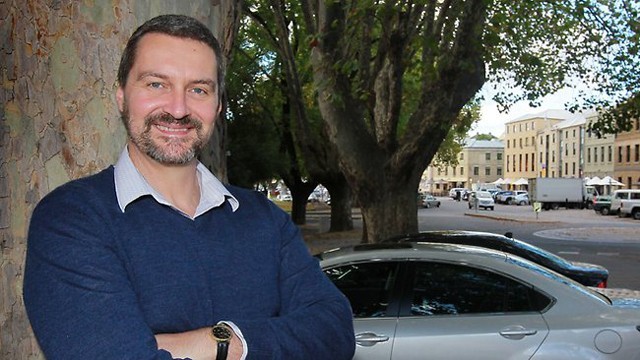Much has changed since the Tasmanian Upper House narrowly voted down a Same-Sex Marriage Bill last year.
Same-sex marriage laws have passed in Britain, France, New Zealand, numerous US states and several Latin American countries without the sky falling in.
The ACT and NSW are close to doing the same, while federal reform seems as unlikely as ever.
Now, the Tasmanian Law Reform Institute (TLRI) has issued a report that shows Tasmania has the constitutional power to pass a law allowing same-sex couples to marry.
When the Upper House voted down the Same-Sex Marriage Bill last year, it was mainly because of concerns that the state didn’t have the power to pass such a law, and it would lose a costly High Court challenge.
After a year’s research, the TLRI has found these concerns are largely unfounded.
It concluded the Constitution clearly gives the states the power to make marriage laws, confirming the finding of a recent NSW parliamentary report that declared the notion that marriage is solely a federal issue to be “an error of fact”.
But the TLRI went further, finding that if there is a High Court challenge Tasmania has a strong case, and even if we lose, the maximum cost will be the equivalent of only 60c per Tasmanian.
This would be a small price to pay for showing principled leadership and reaping the economic boon of hundreds of gay weddings.
The TLRI also addressed other concerns raised during last year’s debate, finding there is no slippery slope from same-sex marriage to polygamy, and that a referendum would be pointless because it would still leave the final decision in the hands of politicians.
Given all this new information from the TLRI, as well as rapid developments nationally and internationally, Upper House members should, at the very least, support an upcoming motion from Ruth Forrest to bring back the Same-Sex Marriage Bill for further debate.
My hope is that they will also vote the Bill into law.
Marriage strengthens relationships and binds families more closely together, including those of gay people.
To exclude same-sex couples from marriage is to exclude us from an institution that signifies love, commitment and belonging, and stigmatises our relationships as second-best.
The Upper House has overwhelmingly supported gay surrogacy and gay adoption.
It should now allow the children of same-sex partners the stability and affirmation that can come with having married parents.
Last year some Upper House members agreed with all this but still voted “no” because they felt a state law was piecemeal and “second-rate”. I agree it would be preferable for there to be a national law.
But the TLRI found that laws in Australia recognising different types of personal relationships, be they heterosexual marriages, de facto and same-sex unions, or civil partnerships, have always started at a state level before going national.
Tasmania was the first state to recognise gay civil partnerships in 2004.
As for “second rate” marriages, same-sex partners want the opportunity to make solemn, legally-recognised vows of lifelong commitment and for that to be called a marriage. A state law does this just as well as a federal law.
No one really cares who passed the law under which they married or how that law is phrased.
They only care that they can marry.
Lawmakers who support the principle of same-sex marriage, but just not this Bill, are cutting off their nose to spite their face.
This is Tasmania’s last chance to take leadership on what has been described as the civil rights issue of our time.
If we don’t seize this opportunity, Tasmanian same-sex couples will have to suffer the multiple indignities of flying interstate to marry, under laws pioneered in their home state, away from family and friends, only to have their solemn marriage vows count for nothing when they return.
All Tasmanian same-sex partners are asking for is to be able to marry the person they love in their beloved island home.
No one else will be hurt.
Marriage will not be devalued.
Religious freedoms will be unharmed.
Nothing will change except that same-sex couples and their families will be happier and Tasmania will be a more respectful and inclusive community.
Rodney Croome, National Director Australian Marriage Equality
Author: Rodney Croome
Publication: Mercury News
Date: 15 October 2013

